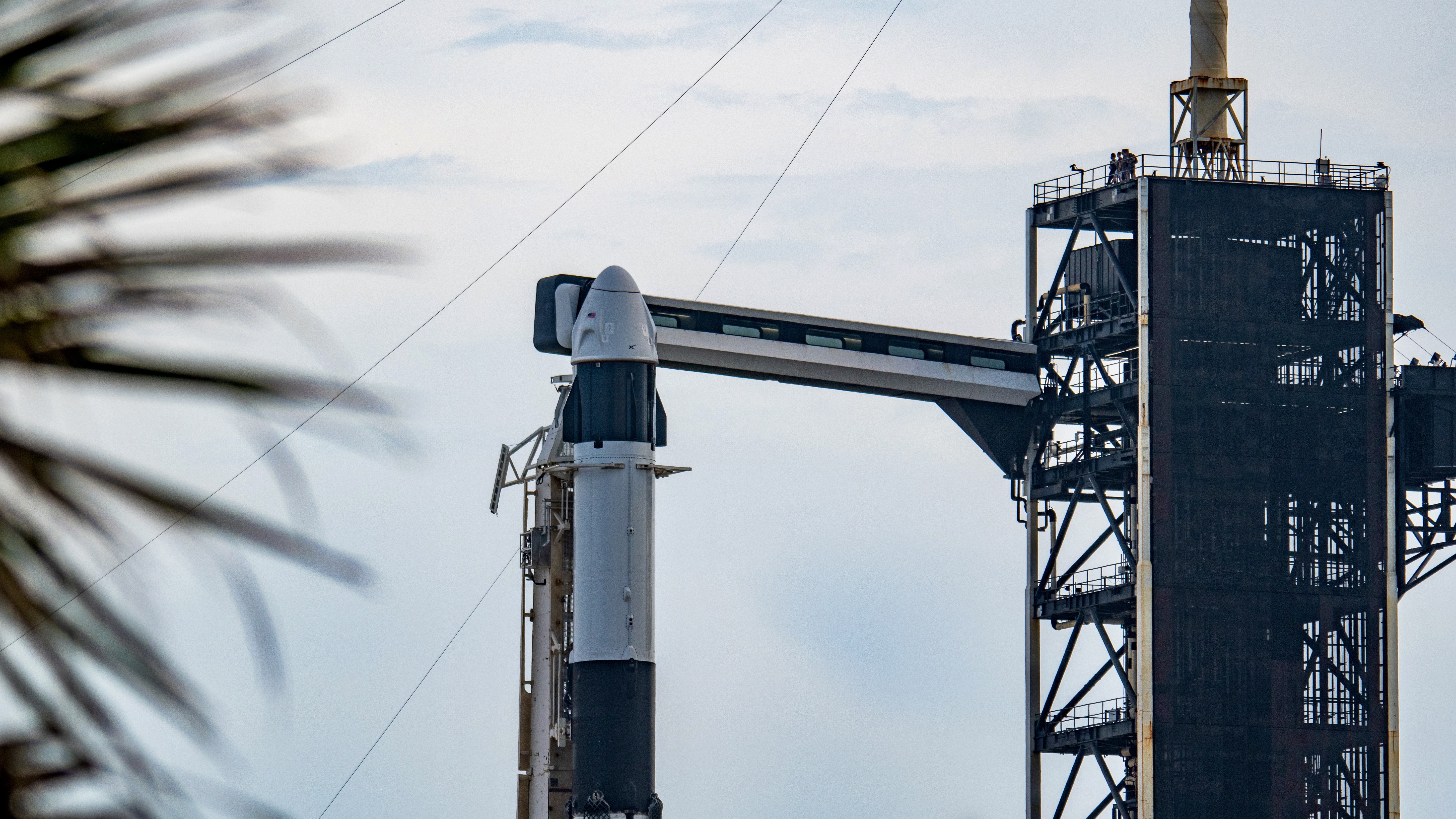China poised to launch Tianzhou 2 cargo ship to Tianhe space station module
Tianzhou-2 may launch today at 1 p.m. EDT (1700 GMT).
Update for 1:35 p.m. EDT on May 19: The planned May 19 launch of the Tianzhou-2 cargo spacecraft has been scrubbed, apparently for technical reasons. It's not clear at the moment when the next launch attempt will be.
China is gearing up to launch the first cargo mission to its new Tianhe space station module, setting the stage for the first crewed mission to the orbital lab later this year.
A Long March 7 rocket rolled out to the launch pad on Sunday (May 16), carrying the Tianzhou-2 cargo spacecraft. A translated statement from the country's China Manned Space Engineering Office said the launch was targeted for 1 a.m. Beijing Time on Thursday (May 20). That's about 1 p.m. EDT (1700 GMT) on Wednesday, May 19.
The mission calls for the cargo vessel to dock with China's Tianhe space station core module to transfer propellant and supplies to support future human missions, including the three astronauts expected to launch on a three-month Shenzhou-12 mission in June, SpaceNews added.
Related: The latest news about China's space program

"The launch site facilities and equipment are in good condition, and various functional inspections and joint tests will be carried out before launch as planned," the China Aerospace Science and Technology Corporation said in a photo gallery and press release that Space.com machine-translated to English.
The pictures appeared to show dozens of unmasked workers gathering near the launch site, waving large red and blue flags. Mainland China reported just 25 new COVID-19 cases on Sunday, the single highest daily number that state-controlled media disclosed in six weeks, according to Reuters. This weekend, the Associated Press also reported China has largely contained domestic transmission of the pandemic, whose first human case was reported in Hubei province in November 2019.
China faced international condemnation earlier this month after a larger Long March 5B core stage booster crashed back to Earth near the Arabian peninsula on May 8. The mission met its main goal of putting the Tianhe space station's first module into space, but the core stage's fall back to Earth was one of the largest uncontrolled ones of recent decades.
Get the Space.com Newsletter
Breaking space news, the latest updates on rocket launches, skywatching events and more!
Just last year, a different Long March 5B core fell uncontrolled over the Atlantic Ocean near west Africa, with some pieces making it to the ground of the Ivory Coast. No injuries were reported.
Follow Elizabeth Howell on Twitter @howellspace. Follow us on Twitter @Spacedotcom and on Facebook.
Join our Space Forums to keep talking space on the latest missions, night sky and more! And if you have a news tip, correction or comment, let us know at: community@space.com.

Elizabeth Howell (she/her), Ph.D., was a staff writer in the spaceflight channel between 2022 and 2024 specializing in Canadian space news. She was contributing writer for Space.com for 10 years from 2012 to 2024. Elizabeth's reporting includes multiple exclusives with the White House, leading world coverage about a lost-and-found space tomato on the International Space Station, witnessing five human spaceflight launches on two continents, flying parabolic, working inside a spacesuit, and participating in a simulated Mars mission. Her latest book, "Why Am I Taller?" (ECW Press, 2022) is co-written with astronaut Dave Williams.
